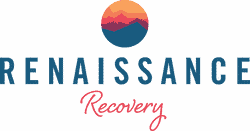Cocaine Withdrawal & Detox
Getting Help from a Cocaine Detox for Withdrawal
Cocaine is a powerful and highly addictive controlled substance derived from the coca plant and comes in both a powdered form or a solid form known as crack cocaine. Cocaine drug abuse can bring about a variety of sharp withdrawal effects.
While cocaine withdrawal is not as intense as withdrawal from alcohol or any other drugs, it can still be a dangerous and uncomfortable process that can have detrimental effects on your physical and mental health. It is best to seek the help of a cocaine detox center if you are looking into quitting cocaine.

By: Renaissance Recovery
Clinically Reviewed by: Diana Vo, LMFT
Last Updated:
02/29/2024
Cocaine Detox & Withdrawal Symptoms
To kick-off, let’s take a look at some of the most common symptoms of cocaine withdrawals. Whether you are struggling with powder cocaine or crack cocaine, withdrawal symptoms can be similar.
Cocaine withdrawal symptoms include:
With that laundry list of negative outcomes in place, how does cocaine withdrawal take place?

Signs of Cocaine Withdrawal
Many variables will affect the severity of cocaine withdrawal symptoms, most notably:
- How much of the drug you’ve been using
- How long you have been using the drug for
- The severity of your addiction
With that said, cocaine withdrawal is characterized by three distinct phases:

Cocaine Withdrawal Timeline
The cocaine withdrawal timeline for those suffering with a cocaine addiction will have plenty of variation based on the length of time of use, physical build of the individual, and amount of cocaine intake.
With mild or moderate cocaine addictions, withdrawal symptoms could be gone in 24 hours. Even though only a day doesn’t seem that bad, sometimes withdrawal can be extremely dangerous and some emotional and other side effects like depression, anxiety, and other mental health issues can persist from days to months.
The cocaine withdrawal timeline typically occurs as follows:
- Crash phase: Initial detox phase that can feel like you have the flu, can last 1-3 days
- Withdrawal phase: Length can vary by each individual, can last up to 4 weeks.
- Extinction phase: Begins after 10 weeks of sobriety, cravings and irritability still exists but begins to subside.
Moderate to severe addictions might see withdrawal symptoms lasting for two to four days. These withdrawal symptoms will more likely be more substantial and may even require medical supervision to do safely.
Almost all acute withdrawal symptoms should disappear within ten days. What lingers in the case of cocaine withdrawal are intense cravings for the drug. Sometimes these intense cravings can push people to the brink of relapse that is why its important to seek addiction treatment and relapse prevention therapy in tandem, this is why some treatment programs utilize drug tapering to help ensure safety during the cocaine withdrawal timeline.
How to Detox From Cocaine Safely
If you or a loved one is struggling with a cocaine addiction and need to get sober, the most effective and safe solution is to find a clinical cocaine detox center. For moderate to severe cocaine addiction, there can be physical and psychological complications that arise during the withdrawal phase of detox, making it necessary to have medical supervision at hand in case of emergency.
A secondary but notable benefit to detoxing in a clinical program is that individuals have the option to continue on into a rehab program which significantly increases their chances of maintaining their sobriety in the long term. This can help prevent relapse in the future, or become a dependable resource to seek help from if they experience relapse.
Most cocaine detox programs are covered up to 100% by insurance issued through your employer, and you can find some that take Medical and Medicaid as well if you need other options.
If you need more information about finding a safe medical detox center, call our recovery hotline at 866.693.3821.


Fight Back Against Cocaine Addiction
Get evidence-based treatment to overcome cocaine addiction at Renaissance Recovery. Call our team now to learn more about the process.

Cocaine Detox Programs
For those in early recovery experiencing cocaine withdrawal symptoms, seeking out a medical detox program that specializes in detoxing from cocaine will give you the best chance to fight back against cocaine addiction, overcome the withdrawal stage of treatment, and begin your new sober life on the right track.
During the cocaine detox process, clients will start treatment at an inpatient or residential treatment facility and be monitored 24/7 by medical professionals as they deal with the withdrawal symptoms associated with cocaine.
Along with some common withdrawal symptoms like nerve pain and mood swings, the withdrawal process can also bring about problems related to mental illness including increased risk of depression, anxiety, and more.
Unlike other forms of substance abuse, dealing with cocaine withdrawals is not often life-threatening, going to a detox program will help clients who are seeking treatment get over the first speed bump of the treatment process, reduce their cravings for cocaine use, overcome early cocaine withdrawal symptoms, and allow clients to focus on detoxing from cocaine.
How Long Does it Take to Detox from Cocaine?
A cocaine detox will be different for everyone, but general the detoxing from cocaine will take about 5-10 days. From there clients can keep moving forward with the treatment process at a rehab program.
Cocaine Detox Help at Renaissance Recovery
In cases of severe cocaine addiction, medically-managed detox is usually advisable. While we don’t offer detox programs at Renaissance Recovery, we can help you find the best detox facility for your situation and get you set up with aftercare at Renaissance.
Health care providers can ensure that withdrawal symptoms don’t exacerbate and become too severe and risk more serious consequences. Medication-assisted treatment is also recommended if you have previously attempted cocaine withdrawal but relapsed. MAT can help ensure clients overcome the cocaine cravings that are common among those who are newly sober.
Unlike alcohol use disorder or opioid use disorder, there is no FDA-approved medication for treating cocaine withdrawals, although research in this area is ongoing and promising. Buprenorphine and naltrexone could be beneficial according to the findings of some animal studies.
With the right behavioral therapy like CBT, you can learn to identify the triggers causing you to abuse cocaine, and you will also formulate coping strategies that don’t involve rolling up a dollar bill.
Outpatient care is usually sufficient for treating cocaine addiction, and our treatment program at Renaissance Recovery can help you build a sober support network that can contribute to long-term and lasting recovery.
Whether you have cocaine dependence or full-blown cocaine addiction, you might benefit from outpatient treatment to help you become substance-free, and to give you the strongest chance of staying that way.
If you or a loved one needs help to get back on track, then, you can get started today by calling our addiction treatment professionals at our cocaine rehab today.

